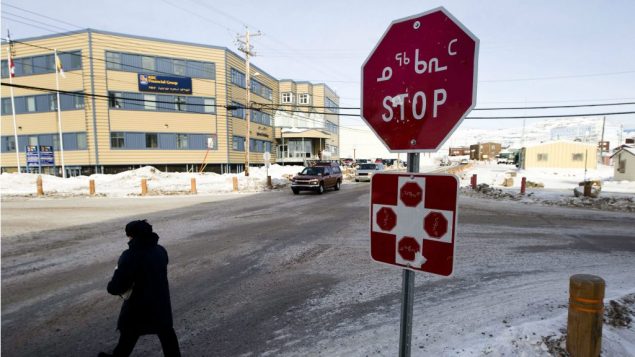Indigenous languages in Canada will not survive another century unless urgent measures are taken to protect and promote their use, the country’s top First Nations leader told a United Nations summit on Indigenous languages on Tuesday.
Assembly of First Nations (AFN) National Chief Perry Bellegarde addressed the full UN General Assembly about the need to protect, reclaim, and revitalize Indigenous languages.
“Language is an inherent human right,” said Bellegarde, whose organization advocates for 634 First Nation communities (also known as reserves) in Canada. “Yet in Canada no First Nations language is safe. Indigenous languages around the world are in danger of disappearing.”
There are more than 70 Indigenous languages across 12 language groups currently spoken in Canada, according to Statistics Canada. In 2016, an estimated 260,550 people in Canada were speaking their Indigenous language. The overall number of Indigenous language speakers has grown by 3.1 per cent in the last 10 years, according to the 2016 census by Statistics Canada.
However, several of the Canadian Indigenous languages have fewer than 1,500 speakers and are on the brink of extinction, with the Tlingit language in Yukon reporting only 255 speakers and the Kutenai language in British Columbia only 170 speakers.
‘An everyday, ordinary thing’
For Indigenous languages to survive, they must be taught throughout the life of every young person, Bellegarde said.
“And they must have the opportunity to use their language in every aspect of daily life,” he said. “It can’t be an extraordinary thing. It has to be an everyday, ordinary thing.”
Thanks to the legacy of Indian residential school system, where for nearly one hundred years Indigenous children were forbidden to speak their mother tongues, fewer than one in five Indigenous people in Canada can hold a conversation in their native language today, Bellegarde said.
“Our Indigenous languages represent who we are as part of the human family,” Bellegarde said. “They also embody the rich contributions that Indigenous peoples make to the world because our languages express the wisdom, our worldview, the laws and lives of our ancestors.”
Legislative efforts to safeguard Indigenous languages in Canada

An English-Inuit language sign at an intersection in Iqaluit, the capital city of Canada’s eastern Arctic territory of Nunavut. (Nathan Denette/The Canadian Press)
Over the past few years, the AFN has worked with the federal government of Canada, as well as with Inuit and Métis organizations to develop “ground-breaking” legislation that sets out a clear national commitment to Indigenous language reclamation, revitalization, recovery and maintenance, Bellegarde said.
This new legislation, known as Bill C-91, has built the foundation for the future, he said.
“The state of Indigenous languages is a national emergency and it has to be treated as such,” Bellegarde said.
Indigenous communities need schools to create and implement effective bilingual and immersion education programs beginning with pre-school age children, he said.
“And we need programs that inspire all of our people to speak our languages, regardless of age, to renew the vibrancy of our communities,” Bellegarde said. “This is true for all Indigenous peoples around the world.”
Significant steps towards reconciliation
Indigenous Service Minister Marc Miller also addressed the UN on Tuesday. He acknowledged how dire the climate is for Indigenous languages in Canada right now, but he pointed to Bill C-91 as a way forward.
“In Canada, we have taken significant steps towards reconciliation with First Nations, Inuit and Métis peoples. If we do not act now to protect these beautiful languages, many of us will not hear it for ourselves in the years to come,” he said, speaking in Mohawk.
Miller, who is a non-Indigenous anglophone from Montreal, has been learning Kanyen’kéha (or Mohawk) for three years. He has said he spends a few hours each day trying to master the complicated Iroquoian language, which is spoken by Indigenous peoples in southern Ontario and Quebec and upstate New York.
“I look forward to seeing the work continue with all Indigenous partners in Canada for the co-implementation of the [languages] act in a spirit of mutual trust and respect,” he said.
With files from John Paul Tasker of CBC News and CBC Indigenous







For reasons beyond our control, and for an undetermined period of time, our comment section is now closed. However, our social networks remain open to your contributions.